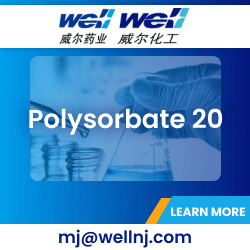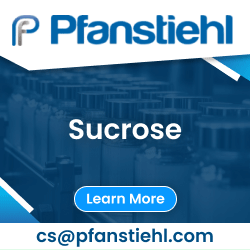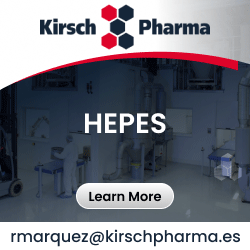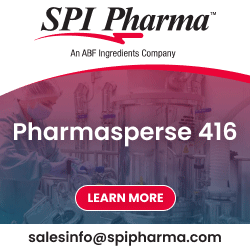Overview of clinical trial materials (CTM) & clinical supply solutions including clinical capsules, double-blind clinical trial capsules, etc.
Q1. What are clinical capsules or clinical trial capsules?
Clinical capsules are specialty capsules designed for use in pre-clinical and clinical studies. Clinical trial capsules are usually empty (1) hard gelatin (two piece gelatin) or (2) HPMC capsules which have undergone over-encapsulation or some other form of masking to distinguish them from other dosage forms, such as placebo drugs. These clinical capsules could improve the cost efficiency of trials, as they reduce the need for companies to produce placebo forms that are identical in size and shape to the candidate drug.
Clinical trial supplies (such as clinical trial capsules) pertain to the distribution of drug products that are packaged, labelled, and manufactured in compliance with cGMP guidelines for clinical trials. These small batches of prepackaged clinical trial supplies are then used for clinical research of drug products via pre-clinical trials and human testing. Prior to commercial manufacturing at a production scale, clinical trial material manufacturing services are carried out during earlier phases of clinical development.
Types of Clinical Trial Capsules on the Basis of Capsule Shell Ingredients
(1) Hard Gelatin Capsules
Hard gelatin capsules are a modern, solid dosage form for medicinal use, stemming from the increased emphasis on pharmacokinetics found in drug development today. This has considerably expanded the range of possible formulations of hard gelatin capsules as simple dosage forms for oral drug delivery.
Hard gelatin capsules or two-piece gelatin capsules, are solid oral dosage forms in which one or more medicinal agents and/or inert materials are enclosed within a hard capsule shell material, composed of gelatin. Hard gels are only available in cylindrical, two-piece capsules and the ratio of plasticizer to gelatin is lower in hard gels (two-piece capsules) as compared to soft gelatin capsules.
Other than gelatin, hard capsules may contain materials such as plasticizers, colourants, water, opacifying agents, and preservatives which either enable capsule formation or improve their performance by facilitating bioavailability enhancement for oral drug delivery.
(2) Hydroxypropyl Methylcellulose (HPMC) Capsules or HPMC (Vegetarian) Capsules
While animal bones and hides are conventionally used for the formulation and manufacturing of hard gelatin capsule shells, now there is a vegetable capsule alternative called HPMC (vegetarian) capsules. These empty shells are filled with active pharmaceutical ingredients. If it is filled with powder, then it is called a dry filled capsule and if it is filled with liquid or semi-solid, it may be called a liquid filled capsule.
Vegetarian capsules which are produced from cellulose are called hydroxypropyl methylcellulose (HPMC) capsules. HPMC veg capsules (vegetarian capsules) are made of natural polymers and fibers and may be referred to as polymer capsules. These polymer capsules may also function as time-delayed release capsules because they have the ability to delay drug release from the capsule shell.
Furthermore, HPMC veg capsules (hypromellose capsules) are attractive, all natural solid oral dosage forms that retain all the advantages of hard gel capsules; they are easy to swallow, effectively mask taste and odor, and allow product visibility.
Hydroxy propyl methyl cellulose (HPMC) or HPMC Veg capsule has thus become a successful alternative for two-piece, hard gelatin capsules and is used for supplements all over the world. Owing to their low-moisture content, these HPMC (vegetarian) capsules or vegetable capsules offer a significant advantage over other solid dosage forms.
Future refinements in the production and filling of capsule shells (hypromellose or time-delayed release capsules) and improvement in their in vivo/in vitro dissolution would ensure their superiority over hard gelatin capsules ( two-piece capsules).
Empty hard gelatin capsules and empty HPMC capsules can be dry filled with powder concoctions, containing active ingredients and excipients, which are selected for clinical trials to assess them for their efficacy, safety and various other parameters.
Over-Encapsulation
Over-encapsulation places a product or solid oral dosage forms (e.g. tablets, caplets, capsules) into an opaque empty hard gelatin or empty HPMC capsule that prevents investigators and subjects from identifying which capsules hold the active medication and which hold the placebo or comparator product.
This is one of the most effective ways to blind both the approved and investigational drugs by placing the dosage form in a gelatin capsule, which serves to “blind” the patient to which product they are being administered.
Other methods of masking are polymer capsules and hard gelatin capsules that cannot be reopened after closing. To meet this objective, capsules with the cap that covers most of the body have been developed. There are various other methods (deinking, overprinting, overcoating, altering packaging, etc.) that are used for distinguishing capsules for clinical studies, however, over-encapsulation remains the most common and effective method of producing clinical capsules.
Over-encapsulation offers the following benefits:
- Multiple doses can look the same in appearance.
- Applicable to solid oral dosage forms such as tablets and capsules.
- Minor manufacturing developments.
- Matching placebo is easily manufactured (provided a common capsule shell with common backfill is acceptable).
Q2. Who are the leading clinical trial capsule manufacturers in the pharmaceutical industry?
There are various empty capsule manufacturers offering empty capsule formulation and manufacturing for clinical supply solutions, however, the leading empty capsule manufacturers specializing in clinical capsules, including hard gelatin capsules (two piece gelatin) and empty HPMC capsules, are:
Capsugel
Capsugel is a pharmaceutical empty capsules manufacturer that has more than 20 years of experience in hard gelatin capsule manufacturing, amongst other technologies. Capsugel offers a range of clinical capsules as specialty capsules , and empty hard capsules, including empty hard gelatin capsules and empty hydroxy propyl methyl cellulose (HPMC) capsules for oral pharmaceutical applications.
They offer clinical supply solutions as DBCAPS®, specialized clinical capsules for clinical trials that are developed with a tamper-evident design to specifically address the clinical trial challenges of testing without bias. DBcaps® capsules are available in 8 sizes and in both gelatin and HPMC capsule shell materials. The wider diameter of opaque DBcaps® capsules allows containment and blinding of large-diameter or uniquely-shaped tablets or other comparator products, while their shorter length makes them easier to swallow.
ACG Worldwide
ACG is the largest pharmaceutical empty capsules manufacturer offering end-to-end formulation & manufacturing of hard gelatin capsules, HPMC capsules, specialized clinical capsules and specialty capsules for the pharmaceutical industry. Additionally, customers get all the support they need to select the right method for the filling of capsules, including empty hard gelatin capsule shells and empty HPMC capsule shells.
ACG offers specialty capsules for use in clinical trials called ACGCAPS™ GC, which are designed for double blind trials. The clinical trial capsules effectively masks tablets, capsules and placebo during clinical studies. Furthermore, they are easy to swallow and result in better patient compliance.
Qualicaps
Qualicaps® is a trusted delivery vehicle for the manufacturing of hard gelatin capsules and products that promote healthcare. Qualicaps’ has the technology and product portfolio to complement the needs of solid oral dosage form or oral formulation production along with pharmaceutical empty hard capsules and softgel machines.
They produce Quali-G™, the first preservative-free gelatin capsule, the market standard solid dosage form designed to meet the demanding requirements of the pharmaceutical industry. Quali-G™ specialty capsules can be used at all stages in the development process, from preclinical toxicological testing through all phases of clinical trials, and finally to commercial manufacturing and product launch. Therefore, Qualicaps has the facilities to support one's requirements for clinical and commercial supply.
Suheung Capsule
Suheung Capsule has over 30 years of experience in contract HPMC and hard gelatin capsule manufacturing services including empty hard gelatin capsule shell manufacturing (empty hard capsules) for oral pharmaceutical applications. They offer highly stable hard gelatin capsule shell materials for the pharmaceutical industry. Inhalation and liquid compatible capsules as well as capsules for clinical trials are also available.
Q3. What are double blind capsules? How are they useful for clinical trials?
Clinical trial materials (CTM) are defined as licensed finished dosage forms or drug products produced in small batches that are suitable for human dosing tests, but not intended for commercial manufacturing.
A blinded (or masked) clinical trial is a field study of a drug in which the recipient does not know if he is receiving the actual drug versus a placebo. Double-blind clinical trial materials further utilize those dosage forms in which both the recipient and the administrator do not know if the recipient is receiving the actual drug. The double blinded clinical trial approach has been shown to provide a more complete understanding of a drug's effectiveness, benefits, and the range of possible adverse reactions without the bias of the "placebo effect" or any experimenter bias.
The double blinding of an experimental drug consists of further defining the pharmaceutical form and choosing the labelling according to the study design. The requirement for matching must go beyond the actual products and extends to all associated packaging and labelling.
Blinding Methods
- Over-encapsulation
- Milling and filling of capsules
- Removing markings
- Manufacturing a generic product
- Producing similar-looking products
- Overcoating
While methods of blinding dosage forms used in CTMs range from deprinting or debossing the comparator or an identical placebo to milling the tablets and filling them into capsules, over encapsulation is the most common process of producing double blind capsules for trials.
Over-encapsulation places the product (e.g. tablets, caplets, capsules) into an opaque capsule shell so that the contents are concealed, producing products that are visually identical. Alternatively, blinding of two substantially different looking treatments may be achieved by bespoke manufacturing both treatments from their respective active pharmaceutical ingredients into either capsules or tablets.
Double blind capsules for trials offer the following benefits, amongst others:
- Double-blind capsules are particularly useful for preventing bias due to demand characteristics or the placebo effect.
- It ensures that the effect of the drug will not be influenced by its characteristic features recognizable by the patient (e.g. color, shape, smell, or taste) or by the behavior of the investigator. Therefore, the risk of false positive or false negative bias in clinical study results is minimized.
- Active comparator products can be discreetly enclosed to improve patient compliance and the tamper-evident design prevents bias.
- Easy to swallow and better patient compliance
Q4. What are the techniques to overcome the challenges of blinding clinical trial materials?
The design of a clinical study, drug product characteristics of the comparator, as well as advantages and challenges for each blinding option must be weighed to determine the best blinding option of blinding dosage forms for clinical trials.
With time, over-encapsulation has become the most widely used technique of blininding CTMs. The method offers clinical supply solutions by blinding supplies in clinical studies, which are larger, more complex, and spread through more countries than ever before. Over encapsulated double blind capsules help to overcome blinding challenges in trials that make it possible to administer a study drug without participants and investigators knowing whether they’re receiving or administering the investigational product or placebo.
However, over encapsulation does have drawbacks, the most common challenges of over encapsulation are its possible effect on dissolution, disintegration, and bioequivalence in clinical trials. Over encapsulation for blinding clinical trial materials can result in lower absorption, solubility and bioavailability of drug products.
Some other challenges of blinding clinical trial materials (CTMs):
- Interactions between the backfill and the gelatin capsules.
- Labor intensivity
- Breaking of blind
- Size accommodation
The dissolution profile of an over-encapsulated product largely depends on the properties of the API, the characteristics of the over-encapsulated unit, and the backfill. While blinding the drug product or placebo in a capsule might not affect dissolution, the choice of backfill may.
According to the GMP regulations for clinical trial material (CTM) manufacturing , study sponsors must provide data (e.g. about dissolution, disintegration, and bioequivalence) demonstrating that over encapsulation will not alter product quality. The use of backfill requires additional compatibility and preformulation studies.
Furthermore, it is recommended to perform excessive preliminary tests prior to manufacturing the clinical trial capsules for clinical and commercial supply. If one understands and controls every step of over-encapsulation—from material selection to manufacture—it is easy to gain an efficient means to ensure the integrity of the study and avoid bias and other challenges of blinding clinical trial materials.
All Suppliers






















